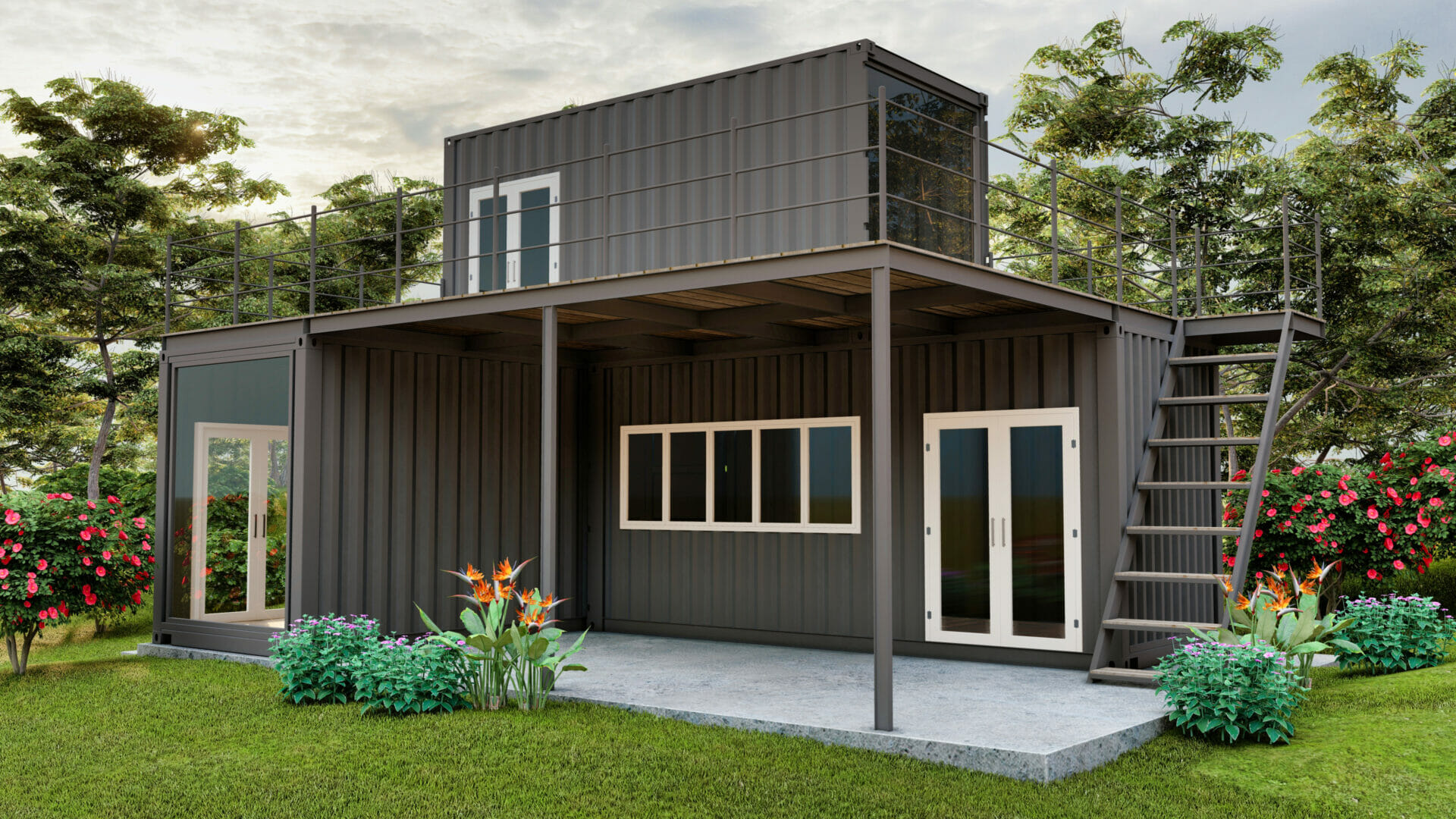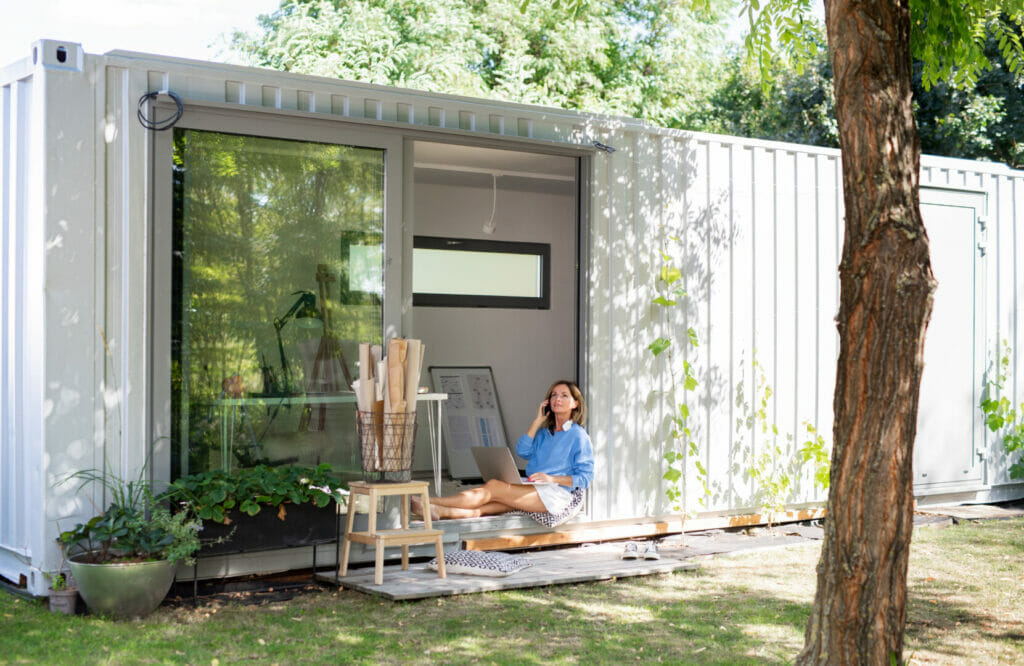
A shipping container is a metal box, primarily made out of steel, that allows businesses to ship goods from one point to another, usually long distances. But, apart from it, there are plenty of other things a person can do with a shipping container, including building a new home.
Shipping container homes are getting more popular these days as they’re quick to put up and provide plenty of benefits. But, before you buy new or 2nd hand shipping containers and start building, it’ll be nice to first learn their pros and cons to know if a shipping container home is the best choice for you.
The Pros Of Shipping Container Homes
Shipping container homes offer a number of advantages. These include the following:
- They’re Cheaper
One of the things that you can enjoy with a shipping container home is how it’s much more affordable than constructing a traditional home. Since you’re working with a smaller-sized structure and possibly recycled material, you don’t have to worry about burning your pockets as your expenses can be reduced by half. Moreover, you’re also dealing with fewer building materials and lower labor costs, which would be a treat for your bank account. Additionally, you can DIY your shipping container home construction, allowing you to get creative and personalize it, without spending a ton.
- Swift Construction
One of the advantages of building a shipping container home is how quickly you can turn it around and make it a livable space. Since it’s small and compact, you can expect it to be done in as little as three weeks, while a traditional home can take months, even years, to construct fully. So, if you’re looking for a quick solution, then a shopping container home would be a great choice for you.
- Easy To Modify
A shipping container home can also be modular as you can easily mix 40- and 20-foot containers to build your home. This prevents the entire construction from being too boxy. Moreover, you can also combine multiple shipping containers, which allows for a larger home that includes your living room, kitchen, dining area, bedroom, or even a guest bedroom.
- Durable
At first glance, a shipping container home may look flimsy as it doesn’t show any strong foundation on its walls and surface. But, surprisingly, it’s quite durable. A shipping container is made out of corten steel, which is often used for outdoor construction. Shipping containers also have high resistance to atmospheric corrosion, helping them last longer than traditional homes.
- Can Be Easily Moved
A shipping container’s main purpose is to move large items from one place to another. With this in mind, you can expect yourself to be able to move your own home as well. All you need to do is to modify your electrical and plumbing system so you can live off-grid and move around.
- The Cons Of Shipping Container Homes
While there are plenty of advantages that a shipping container home can bring to the table, there are also some drawbacks that you need to prepare for. Knowing what those are will help to decide further if it’ll be a good option for you. Listed below are some cons of shipping container homes:
- Being Eco-Friendly Is Subjective
If you’re eco-conscious, then switching to a shipping container home might not be your best option. While you can easily purchase secondhand shipping containers to build your house, some people prefer to buy brand-new ones to guarantee stability and safety. Moreover, you’re still using a large amount of metal, which can be dedicated to wood, a renewable resource. To be more eco-friendly with this switch, you could try living off-grid by using renewable energy resources , harvesting rainwater, and growing your own food to minimize your carbon footprint.

- Difficult To Obtain Permit
Since you’re not building a traditional home, you might have a hard time obtaining a building permit for your shipping container home. Before you purchase one, you need to check with your municipality first and see if you’re legally all owed to live inside a shipping container home. Moreover, check their requirements, building codes, and zoning restrictions. This will help avoid any inconvenience as you build one.
- Challenging To Find A Vacant Lot
It’s a rare occurrence that you can buy a secondhand shipping container home where you can move in. So, as you plan to build a new one yourself, you’ll need to look for a vacant lot to place your house on. While there are plenty of options outside the city, this might not be your best choice, especially if you’re eyeing convenience to essential establishments. With that, expect to face challenges as you look for a location that’s near a hospital, grocery, school district, and pharmacy.
- Shorter Lifespan
The average lifespan of a shipping container home is 25 to 30 years. Even if such homes are amazing at dealing with outdoor elements, their durability aren’t designed to last long. While you can always do quick repairs and replacements, these might only help to extend their lifespan for a few years. But, if you’re the type of person who likes to change your living environment consistently, then this shouldn’t be too much of an issue for you.
- Less Space
A standard shipping container can vary from 20 to 40 feet. While it seems large, it’d be a bit more compact if you turn it into a home. With this, you can expect yourself to have less moveable space as you’ll to do add furnishings as well. Alternatively, you can separate the sections of your home with different containers, but it won’t provide a larger traffic space. Consider this as your tiny house , but with the added flexibility and creativity.
- Takeaway
A shipping container home has its fair share of pros and cons. But, identifying those will help you further decide if it’s the right choice for you. While the cost-saving feature and speed of construction might attract you, you also need to consider obtaining permits and how it can impact the environment. With thorough research and preparation, you should be able to decide if a shipping container home is what you’ve been looking for.
